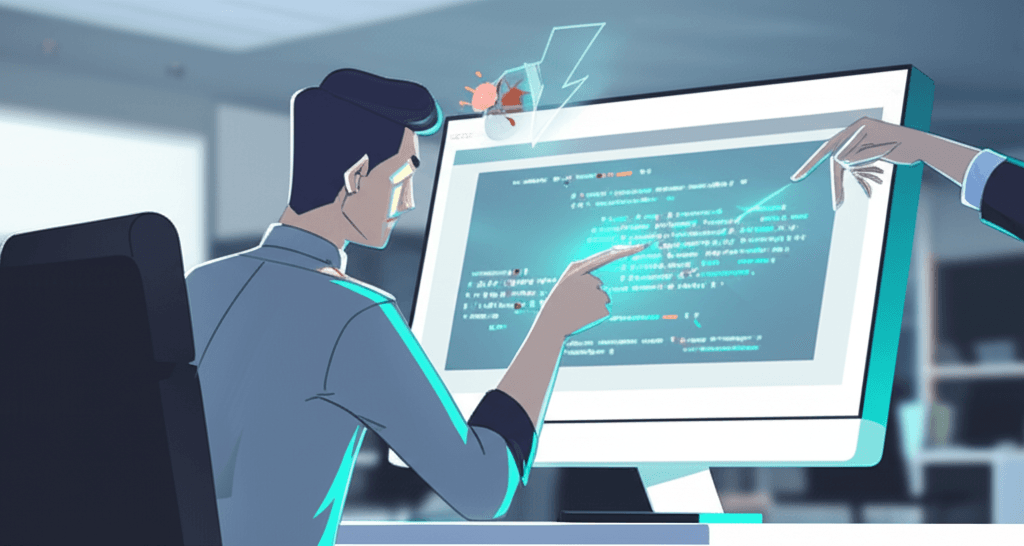Developers Rapidly Adopt AI Coding, But Trust in Accuracy Plummets
Developers embrace AI coding, but trust plummets: 'Almost right' code creates more debugging, security risks, and demand for human expertise.
August 9, 2025

A significant paradox is unfolding in the world of software development. While developers are adopting artificial intelligence-powered coding assistants at an unprecedented rate, their trust in these sophisticated tools is simultaneously and sharply declining. A growing chorus of frustration is rising from the very community these tools were designed to empower, as they grapple with AI-generated code that is often "almost right, but not quite." This subtle yet persistent inaccuracy is leading to increased debugging time, raising concerns about code quality and security, and forcing a recalibration of expectations for the role of AI in the future of programming.
The adoption numbers paint a picture of a technology rapidly embedding itself in daily workflows. The 2025 Stack Overflow Developer Survey, which polled over 49,000 developers, revealed that 84% are now using or plan to use AI tools, a notable increase from previous years.[1][2][3][4] However, this widespread usage is met with a stark erosion of confidence. The same survey found that the percentage of developers who trust the accuracy of AI outputs has plummeted.[1][5] One report cites a drop from 43% in 2024 to just 33% in 2025, while another analyzing the same data points to trust falling as low as 29%.[1][5][6] A staggering 46% of developers now say they actively distrust the accuracy of AI tools.[7][8][9][4] This growing skepticism is fueled by practical, everyday frustrations. A majority of developers, 66% according to one report, find themselves spending more time than they expected fixing the subtly flawed code that AI produces.[5][7][9] Another source highlights that 45% of developers believe debugging AI-generated code is more time-consuming than anticipated.[2][9]
The core of the problem lies in the nature of the errors AI tools make. The code they generate often appears plausible and might even function correctly in limited tests, but it can harbor hidden bugs, security vulnerabilities, or a fundamental misunderstanding of the developer's intent.[10][11][12] These tools can misinterpret prompts, hallucinate non-existent libraries, introduce inefficient logic, or produce code that lacks the necessary context of the broader project architecture.[11][12] One study by GitClear found that the use of AI coding assistants correlated with a significant increase in duplicated or copy-pasted code, a practice that can lead to maintenance nightmares and hard-to-track bugs.[13] Furthermore, AI models trained on vast but sometimes outdated datasets can inadvertently suggest deprecated libraries or insecure coding practices, posing a real threat to application security.[12][14] This has tangible consequences, with some companies reporting system outages and security issues directly linked to the deployment of insufficiently reviewed AI-generated code.[15]
In the face of these reliability issues, developers are overwhelmingly turning back to a trusted source: human expertise. When they don't trust an AI-generated answer, 75% of developers say they will ask another person for help.[1][5][16] This highlights a crucial reality that the initial hype around AI replacing developers seems to have overlooked. Critical thinking, contextual understanding, and collaborative problem-solving remain indispensable human skills in software engineering. Platforms like Stack Overflow are even seeing a new kind of traffic, with a significant percentage of visits now driven by developers trying to solve problems that originated with an AI tool's faulty suggestion.[2][6] The data also reveals a telling experience gap: senior developers, who possess a deeper understanding of code quality and architectural nuances, are the most cautious and distrustful of AI output, while those still learning to code are more trusting.[3][7] This creates a dangerous knowledge gap, where the least experienced are the most likely to accept flawed suggestions at face value.[7]
The implications of this growing trust deficit are significant for the AI industry. The initial euphoria is giving way to a more pragmatic and discerning user base that understands both the capabilities and the limitations of current AI technology.[1] Developers are learning to use AI judiciously, leveraging it for routine, boilerplate tasks while maintaining rigorous human oversight for complex and critical work.[1][17] The focus is shifting from simply generating code to reviewing, verifying, and integrating it, changing the developer's role to one of a supervisor and quality controller.[18] For AI tool vendors, the message is clear: the path to winning over the development community is not just through speed and volume, but through accuracy, transparency, and reliability. Until AI can consistently produce code that is not just "almost right," but verifiably correct and secure, human developers will remain the ultimate arbiters of quality, and trust will remain the most valuable commodity in the age of AI-assisted programming.
Sources
[1]
[2]
[7]
[9]
[11]
[12]
[13]
[14]
[15]
[16]
[17]
[18]